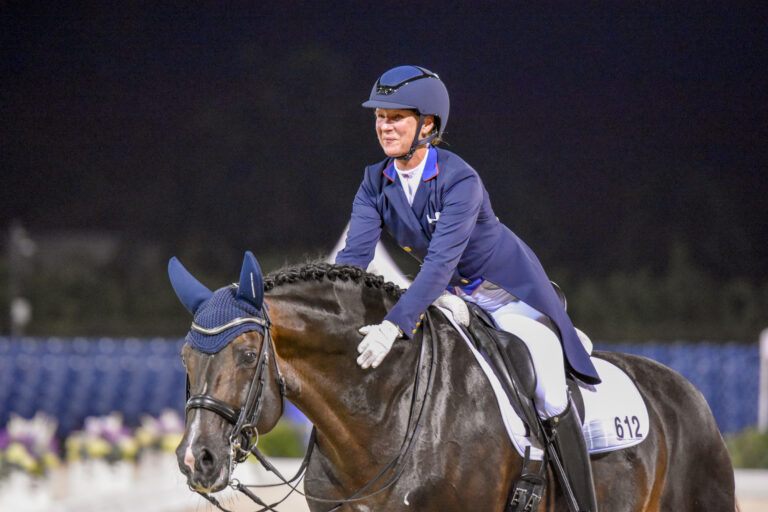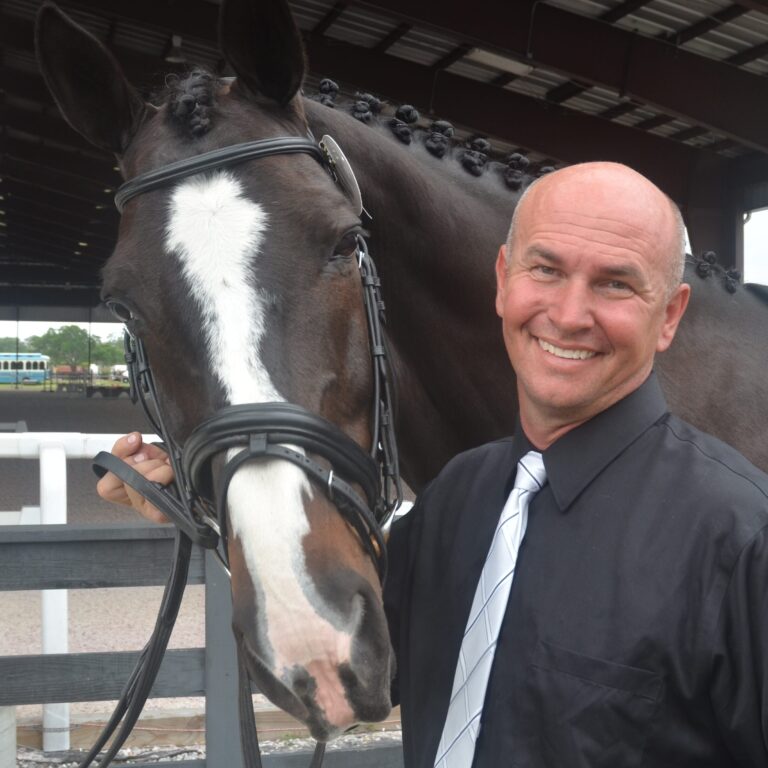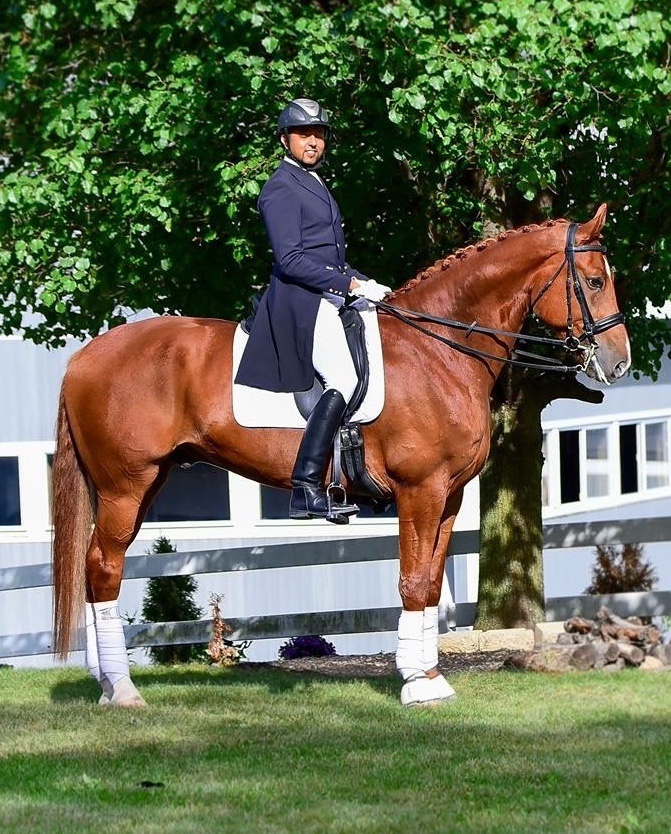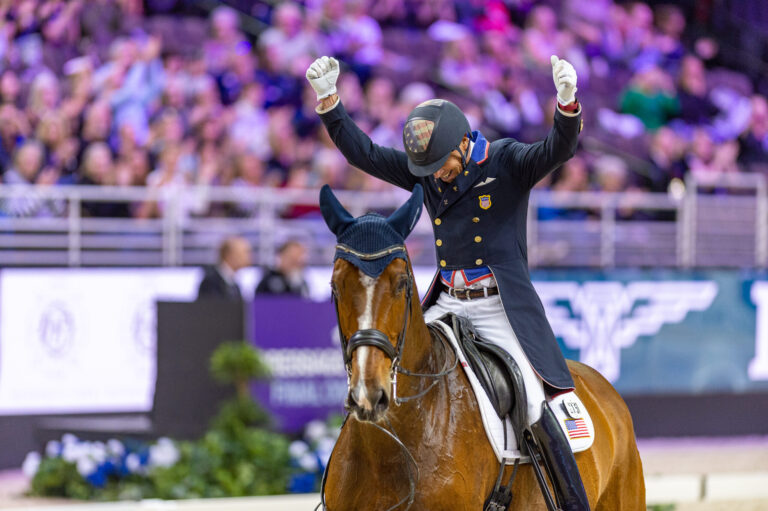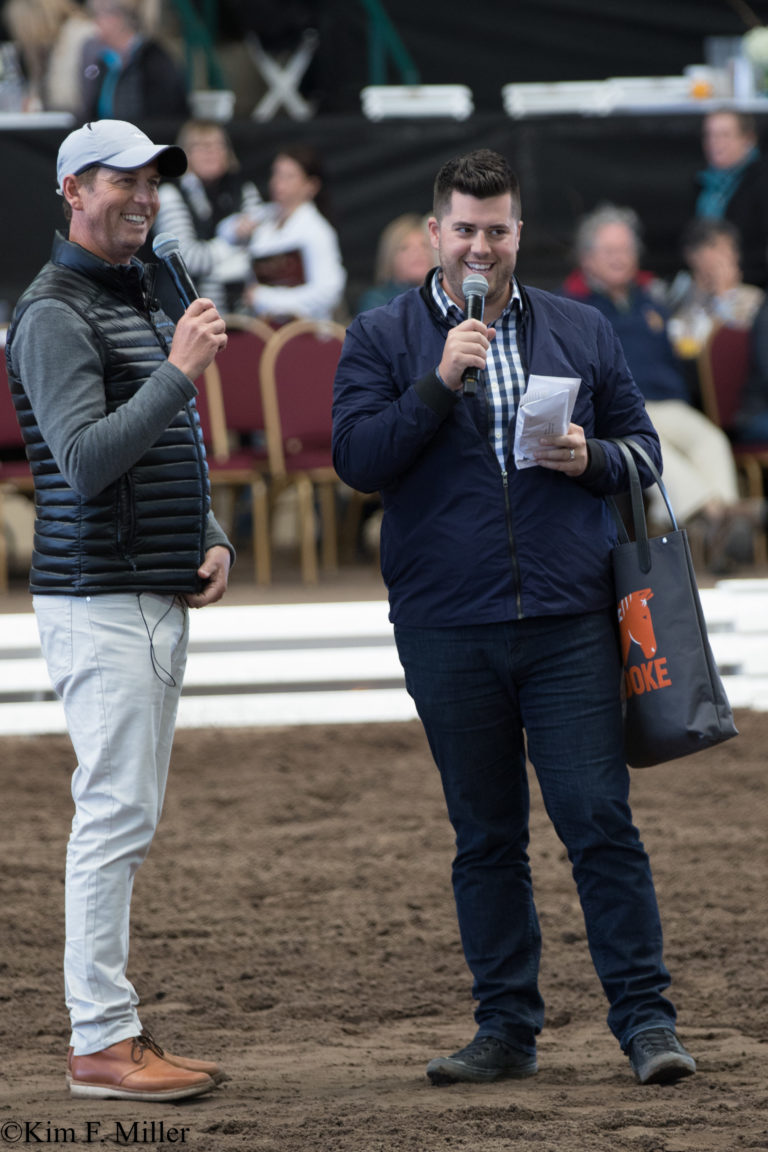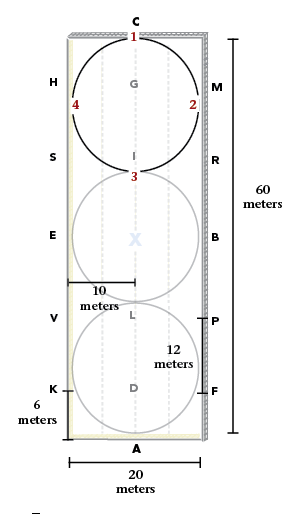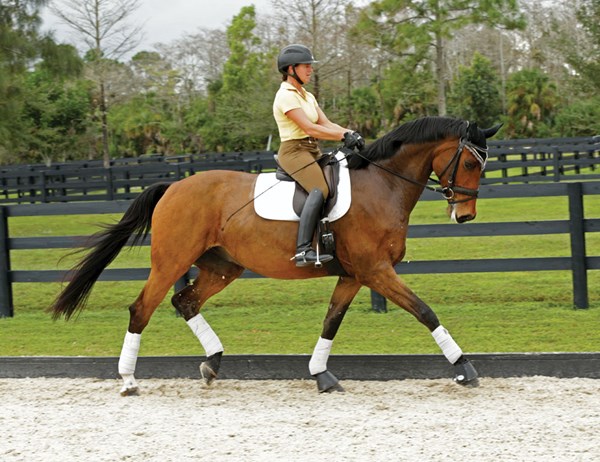1. You have a horse to ride because
A) being in competition gives you goals and lets you know how your horse stacks up against others.
B) you find it mentally stimulating to think through training issues and work on them with your horse.
C) riding your horse provides companionship, exercise and time away from work/family/house.
D) you enjoy the occasional lesson, being around the barn and talking about your horse.
E) ride? I thought I had them to be exhausted by horse chores and broke.
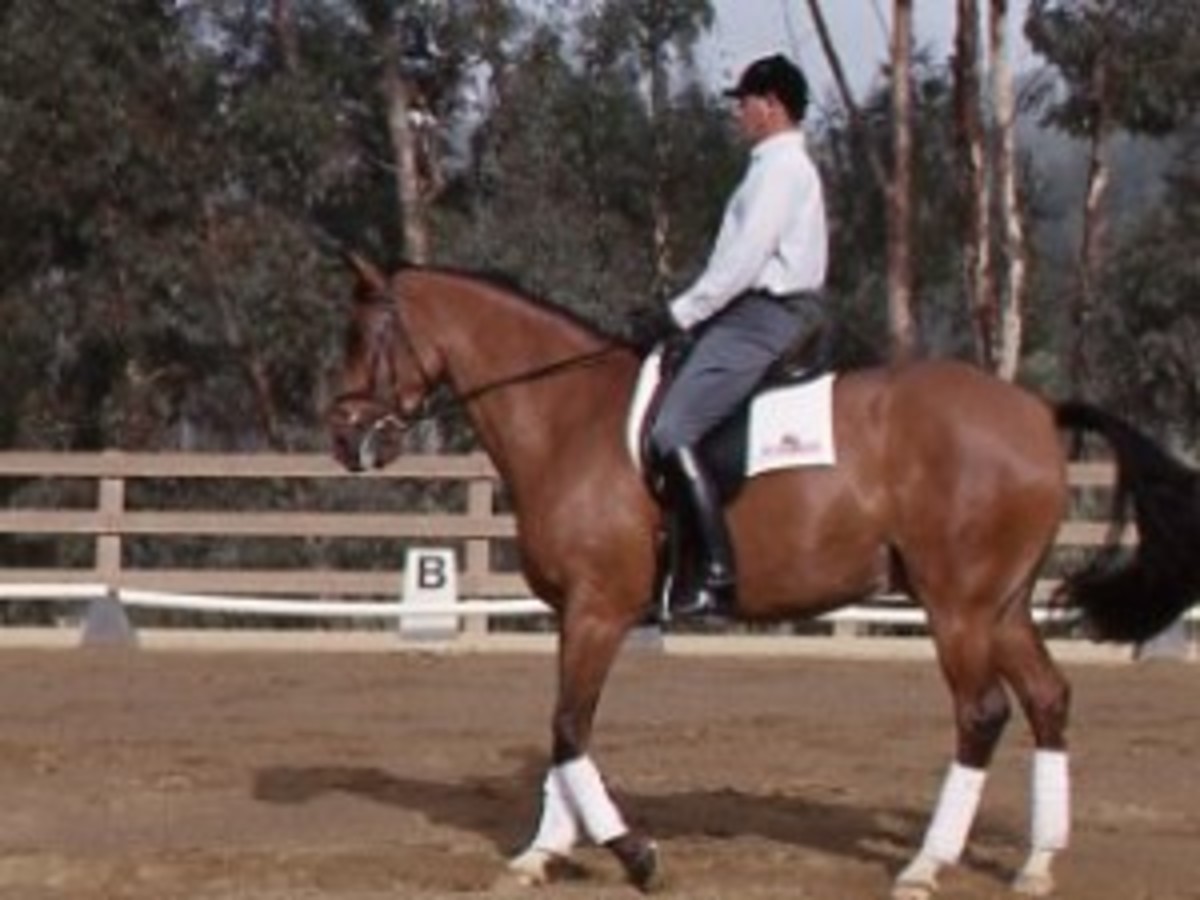
2. Your idea of a “hard lesson” is
A) a 40-minute longe lesson with no stirrups to improve your seat.
B) an intense one-hour lesson in which your horse and you perfect a movement or learn something new.
C) any 40- to 60-minute lesson
D) 20 minutes of riding and 30 minutes of mounted chitchat.
E) anything that involves trotting, using your legs or engaging your brain.
3. You would pay or have paid top dollar for a clinic with a really famous person because
A) of the insights that only the best can provide, even if he is hard on you.
B) you are thrilled just to be in the same arena as these people.
C) all the other people at your barn went, so you went, too, and were mostly mystified.
D) you mistakenly thought he would yell at you less than your regular instructor.
E) they provided a nice place to sit down with snacks.
4. If your horse were going with a “strong connection” and you found it tiring to ride him, you would
A) have your instructor ride him for a while to get him up off the forehand.
B) work on upper-body strength at the gym.
C) practice a lot of shoulder-fore, lateral movements and other exercises to lighten him.
D) get a more serious bit.
E) explain that you ride a [insert breed] and have no idea what you are talking about.
5. The 20th time your instructor says, “More leg,” you think
A) I will increase my reps at the gym.
B) I wish I were 20 years younger and had the strength to do this work.
C) maybe I need bigger spurs.
D) these are all the legs I have.
E) that’s it. I’m going to ride saddle seat or maybe buy a cow pony and a big hat.
6. In order to be physically fit to ride, you
A) go to the gym, do Pilates, get massages and see a sports psychotherapist.
B) go to Curves sometimes.
D) unload hay, clean stalls and jog around pasture in pursuit of horse.
C) do housework, which exhausts you.
E) do bicep curls with wine glasses.
7. If your instructor said your horse needed massage, chiropractic, acupuncture and Adequan?, you would
A) just do it. All high-level competition horses need these things.
B) think, What? No appointment with the kinesiologist, Chinese medicine expert and psychic?
C) ask why he needs each (or any) of these things and do those deemed most important.
D) decline all of the above, buy a pack of supplements online instead and hope for the best.
E) feel deprived (He’s not the one who can hardly walk after a 20-minute ride.)
8. If you couldn’t ride anymore, you would
A) be in a box, six feet under.
B) volunteer as a scribe, audit clinics, support riders with Olympic ambitions and maintain your interest in the sport.
C) get a tiny pony and drive him, do Parelli ground work and anything to be around horses.
D) take up golf; watching other people ride would be way too depressing.
E) secretly feel really, really relieved.
9. If your instructor told you that your horse will never compete successfully at the level to which you aspire, you would
A) sell the horse and move on to the horse that can do the job.
B) keep the horse and buy a second one for competition.
C) keep working with this horse, because you never know.
D) feel really, really relieved, because now you can stop trying.
E) feel cynical, a little disappointed and really angry.
10. If your coach/instructor told you that your horse was too talented for an amateur (i.e., you) and needed to be ridden by a pro (i.e., her) you would
A) develop a nine-point plan to be able to ride up to the level of this particular horse.
B) be happy that he had so much talent and suggest she ride the horse with the idea that you can ride him later.
C) think, Well, I’m sorry about that, but he’s my horse and he can just go at my level.
D) wonder if your instructor’s horse was currently lame.
E) See “E” above (in number 9)
11. If your coach/instructor told you that you had more ability and ambition for dressage than your horse and you would learn more from a more talented horse or schoolmaster type horse, you would
A) bask in having your achievement validated and buy the “big” horse.
B) ride a schoolmaster and buy a young dressage prospect to “bring on.”
C) work out a program to explore what you could achieve with this particular horse.
D) be pretty sure that anyone who thought you had “ability” or “ambition” was smoking crack.
E) wonder if your instructor is planning to sell you her horse.
12. You think spending $20,000 for a horse is
A) not nearly enough to buy the horse you need.
B) a reasonable investment in a nice young prospect that you can bring along.
C) reasonable, given that your husband just spent twice that on a Bass boat.
D) not worth thinking about, as $20,000 should stay in an investment account.
E) a moot point, as you don’t have $20,000.
13. You think borrowing $20,000 to $50,000 to buy a competition horse is
A) a reasonable investment in the sport to which you have dedicated your life.
B) a lot of money but reasonable to follow your dream.
C) something you fantasize about and might actually do if you didn’t have to worry about mortgages, retirement, kids in college, parents in care facilities, etc.
D) insane.
E)…sorry, still laughing at anyone who puts the words “horse” and “reasonable investment” in the same sentence.
14. Your instructor/trainer/coach
A) trained in Europe, has an interesting accent, travels around the country to give clinics and competes on a regular basis.
B) trained with the guys who trained in Europe, has a regular accent, competes and teaches a lot.
C) does not have an accent, has worked hard to acquire riding and teaching skills by taking lessons herself, studying, attending selected clinics and observing the “best” at work.
D) read some books by the guys who train in Europe, fakes an interesting accent and has worked hard to learn German swear words.
E)… Instructor?
15. How many saddles do you own for this horse?
A) I have one custom made to fit both of us, and the saddle fitter adjusts it every three months.
B) four right now: one the saddle fitter said had the wrong tree, so he sold me #2. My instructor said #2 didn’t fit and I should buy her saddle. The chiropractor said #3 didn’t fit, and the saddle fitter she uses told me to buy #4. I’m thinking of getting #5, but a friend has a treeless saddle, and…
C) 2.5–one for dressage and one for jumping and the one I am bidding on in an eBay auction.
D) one, which I bought to fit this horse and isn’t too bad.
E) one, which I bought in high school and have used for all my horses.
16. You went to Dressage at Devon
A) to judge.
B) to ride.
C) to watch upper-level work and learn.
D) to shop and watch the K?r.
E) because a friend had a box right behind “E” and showed up with wine and snacks.
17. If you were to buy that talented 4-year-old for $25,000, you would
A) plan for a lot of hard work and input from your instructor/coach to keep you on the right track.
B) send him to your instructor/coach until he was a talented 6-year-old or maybe 8-year-old.
C) be concerned about your ability to bring him along without ruining him.
D) buy more life and disability insurance in case he is planning to ruin you.
E) watch him grow up and talk about what he could have done had he been broken to ride.
18. When you sit the trot, you
A) feel your horse round up under you and enjoy the feeling of “oneness” with him.
B) work hard to go with the flow and usually manage not to annoy the horse too much.
C) grit your teeth and do the best you can.
D) are just sure you would do this better with a different saddle, and schedule an appointment with that saddle-fitter guy.
E) start thinking that a Walking Horse is a really good idea.
Bonus question!
When you think about Schwung,
A) you get a deep body memory of you and your horse moving forward as one.
B) have never really felt it but can recognize it in other people’s tests.
C) you hope someday to have this feeling with your horse.
D) you pretend to know what people are talking about.
E) …You schwunged once with your college boy/girlfriend and decided never to do it again.
ANSWERS:
If you chose mostly A answers: Go get the horse that gets you to Devon and be done with it. It’s your life, soul and dream and, if you get to 60 years old and have never had the “big horse,” you will be impossible to live with. We wish we had your discipline. We wish we had your dedication! We wish we were like you! We admire you from afar, because, actually, we are afraid of you–probably with good reason.
If you chose mostly Bs: If you can swing this without ending up in receivership, divorce court or the orthopedic ward of the hospital, go for it. Cancel the country club, give up the yearly cruise, pay your health insurance and go get as nice a horse as you can manage.
If you chose mostly Cs: Maybe you should get off the fence! Are you sure you’re not a closet A? Or maybe you REALLY want to be a D or E? Tell the truth now!
Mostly Ds and Es: Welcome to our world!
Dr. Chris Uhlinger is a veterinarian who has been in equine practice a little too long. She has given up trying to ride above First Level and is now in training to be a professional curmudgeon and crazy old lady. She is a lobbyist on behalf of banning braids on horses, white breeches on riders older than 10 and the sit trot for anyone born west of the Rhine. She is not going to tell you where she lives, because then you will figure out how to reach her, call her up and tell her some long, long, long story about your horse’s real or imagined hind end lameness and how it got better after you started feeding certified organic lark poop.
Diana Rickets also worked on this piece. She declined to send in a bio out of shyness and thus left herself at my mercy. Diana is locally famous for her ability to be happy and pleasant at a dressage show before the Pinot Noir has been uncorked. She is a talented rider notable for her desire to provide “enrichment opportunities” for her lovely big horse, Gotham. These have included dressage shows, de-spooking clinics, Parelli-up-through-the-levels, endurance rides and survivor-style trail rides led by a crazy old lady veterinarian.


